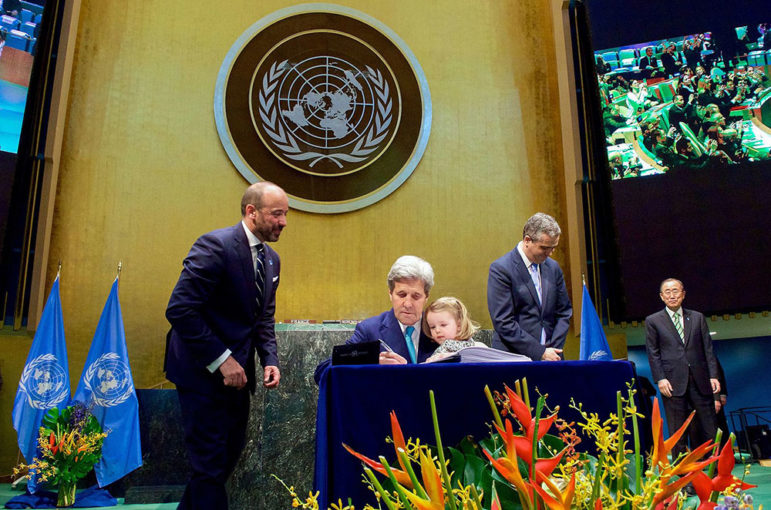
During the last week, the United States has seen a preview of what the Trump administration may look like. Over the next four years, many of the things we have come to accept as standard elements of our economic and social fabric may be in danger of defunding, withdrawal, or attack.
One particular shift in the wind has given many businesses and scientists cause for alarm. President-elect Donald Trump has pledged to “rip up” the much-touted Paris climate accords, which represent the United States’ first participation in a global effort to address climate change. Mr. Trump has emphatically stated that he does not believe in climate change, claiming that it is a hoax created by the Chinese. (The Chinese, equally emphatic, have denied this accusation.)
This week, more than 360 businesses published an open letter to the president-elect, asking him and other elected officials to address climate change by implementing the Paris accords.
Specifically, they called on leaders to support:
- Continuation of low-carbon policies to allow the U.S. to meet or exceed our promised national commitment and to increase our nation’s future environmental ambitions
- Investment in the low carbon economy at home and abroad in order to give financial decision-makers clarity and boost the confidence of investors worldwide
- Continued U.S. participation in the Paris Agreement, in order to provide the long-term direction needed to keep global temperature rise below 2°C
They are joined in their pleas by members of the U.S. National Academy of Sciences, who published their own open letter, stating:
Sign up for our free newsletters
Subscribe to NPQ's newsletters to have our top stories delivered directly to your inbox.
By signing up, you agree to our privacy policy and terms of use, and to receive messages from NPQ and our partners.
We are certain beyond a reasonable doubt…that the problem of human-caused climate change is real, serious, and immediate, and that this problem poses significant risks: to our ability to thrive and build a better future, to national security, to human health and food production, and to the interconnected web of living systems.
French president François Hollande chimed in, calling on Trump to respect the global agreement.
The Paris accords are not without their detractors, but there are many historic elements to the agreement and it is widely seen as a good first step to engaging with a large and alarming global trend.
Trump would not be the first president to reverse significant progress on cutting carbon emissions. Jimmy Carter was the first president to install solar panels on the White House in 1979 and used them to heat water in the building. His administration set a goal of curbing emissions by 20 percent by 2010. Ronald Reagan “gutted the research and development budgets for renewable energy at the then-fledgling U.S. Department of Energy (DoE) and eliminated tax breaks for the deployment of wind turbines and solar technologies,” according to Scientific American, saying, “The Department of Energy has a multibillion-dollar budget, in excess of $10 billion…It hasn’t produced a quart of oil or a lump of coal or anything else in the line of energy.”
Today, only 13 percent of U.S. energy comes from hydropower or other renewables. Many have wondered where would we be now in in terms of renewable energy and climate stability if Carter’s plan had been followed.
As NPQ has pointed out, American civil society has an obligation to react in an active and engaged way to dangerous statements like the denial of climate change. When businesses and governments join in, you have a situation not unlike the multi-sectoral pressure that was visited on Indiana under Vice President-elect Pence in the wake of the passage of Indiana’s religious freedom law, which was widely seen as an abrogation of the rights of LGBTQ people. In that case, the resistance grew into a threatened boycott from businesses, foundations, and other state governments. We are not at that point yet, but resistance has begun to accumulate.—Erin Rubin










